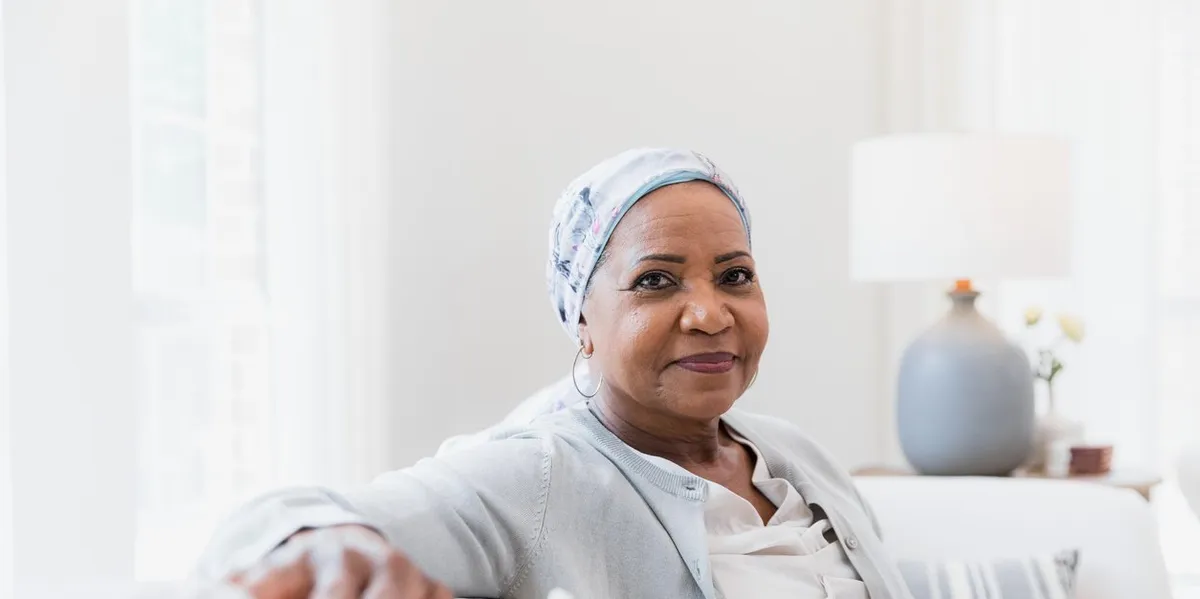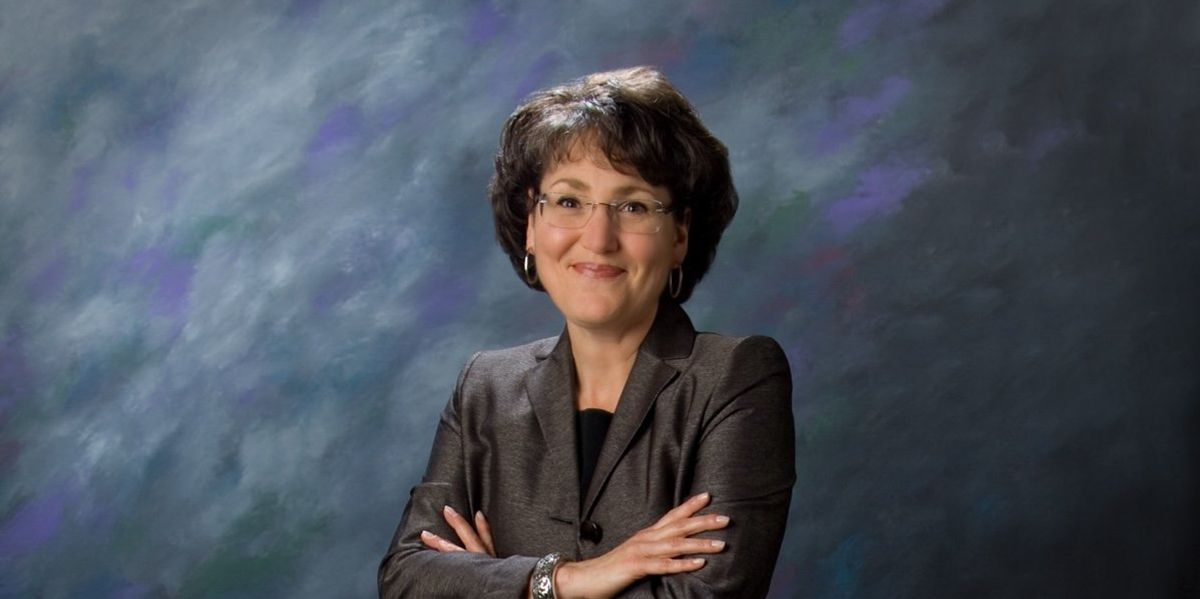September 2024 is National Ovarian Cancer Awareness Month.
Like most cancers, ovarian cancer has better outcomes if it’s treated early. However, it’s tough to find ovarian cancer early because it often has no symptoms. In the U.S. alone, there are almost 20,000 new cases of ovarian cancer each year — and more than 14,000 deaths.
Ovarian cancer, which occurs when abnormal cells in the ovaries grow uncontrollably, is more common in white women — yet, Black women have lower survival rates. And the difference is pretty big. The five-year survival rate in Black women is 41% — a full 7% lower than the 48% five-year-survival rate seen in white women.
And for early- and late-stage ovarian cancer, Black women’s survival rates are worse not just than that of white women, but of all other races and ethnicities.
We reached out to Holly Harris, MPH, ScD, the lead researcher of a 2022 study designed to better understand why Black women have worse survival rates and outcomes of ovarian cancer than other races and ethnicities.
Disparities in access worsen Black women’s outcomes
Harris, an associate professor of epidemiology at Fred Hutchinson Cancer Research Center, said a lot of the disparities in ovarian cancer outcomes for Black women come down to access. Unfortunately, Black women are less likely to get offered the treatments that are recommended by professional medical guidelines. In fact, one 2019 study found that Black women were 25% less likely than white women to get the recommended ovarian cancer treatments.
“Black women are less likely to receive guideline-adherent care, and that’s likely impacted by the areas they live in and their access to different resources,” Harris said.
Social determinants of health worsen ovarian cancer outcomes for Black women
Social determinants of health (SDoH) can contribute to the health disparities and inequities Black women face. SDoH are nonmedical factors, such as socioeconomics (job type, level of education and income) and where you live, work and play, that affect the quality of life, opportunities and health outcomes.
According to the National Women’s Law Center, in almost every state, Black women are more likely to be uninsured, live in poverty, have limited access to food and face issues securing housing than non-Hispanic white women. All of these factors can make it challenging for Black women to access and afford healthcare.
“Socioeconomic factors likely explain some of the disparities [Black women with ovarian cancer face],” Harris said. “The area that you live impacts [your ability to receive] quality care. For ovarian cancer, it’s really important that people are able to receive guideline-adherent care, and that’s something that socioeconomic status is likely impacting.”
Structural racism may affect ovarian cancer outcomes
Even with good care, Harris added that Black women may face racism from healthcare providers (HCPs) when seeking treatment. She notes that structural racism may play a role in disparities among Black women with ovarian cancer. Structural racism is the various ways in which society limits resources, opportunities, power and well-being of people based on their race and/or ethnicity.
A 2022 research article found that structural racism that affected Black women’s finances led some to go without reproductive healthcare or face barriers to seeking care, which can include:
- Not having a reproductive healthcare facility in their neighborhood
- Being unable to access reliable transportation to the nearest reproductive healthcare facility
- Medicaid not covering certain reproductive healthcare services
- Having Medicaid copayments for reproductive healthcare services that are too expensive, leading them to delay or forgo care
Researchers also discovered that individual racism led to some women choosing to receive healthcare from same-race HCPs.
Because racism can play a large role in health outcomes for Black women, Harris also said that HCPs need to address their biases to provide better care to Black patients.
“[HCPs must] uncover their own unconscious bias and make sure that they’re giving patients the best care they can,” Harris said.
How Black women can seek better treatment for ovarian cancer
Here are ways you can advocate for yourself to get the healthcare you need and increase your chances of survival from ovarian cancer:
- Be your own patient advocate: If you feel that your HCP is dismissing your concerns, speak up. Come to your doctors’ appointments with prepared questions, keep your health records on hand, ask them to explain any test results you don’t understand and get a second opinion if needed.
- Seek care from an NCI-designated cancer center: According to Harris, Black women may increase their survival rates from ovarian cancer by seeking care from well-respected and quality cancer institutions. “If you have the ability to get yourself to an NCI-designated cancer center, then you’re more likely to receive quality care,” Harris said. You can search NCI’s database to find a NCI-designated cancer center in or near your community.
- Find culturally competent HCPs: It’s important to find an HCP who can offer quality care and be mindful of your race, ethnicity, language and cultural beliefs, which can impact your patient experience. You can search online to discover HCPs of your race and ethnicity at sites such as Black Doctor.org or the Association of Black Women Physicians to find HCPs that will make you feel seen and understood.
- Consider joining a clinical trial: Participating in a clinical trial can give you access to the newest treatments and allow you to contribute to research that could benefit other Black women with ovarian cancer. You can ask your oncologist or visit ClinicalTrials.gov or BlackDoctor.org to find an appropriate clinical trial to discuss with your HCP.
- Reach out to support networks and advocacy groups: Organizations like the SHARE Cancer Support can provide the resources and support to help you navigate treatment for ovarian cancer.
This educational resource was created with support from Merck.




